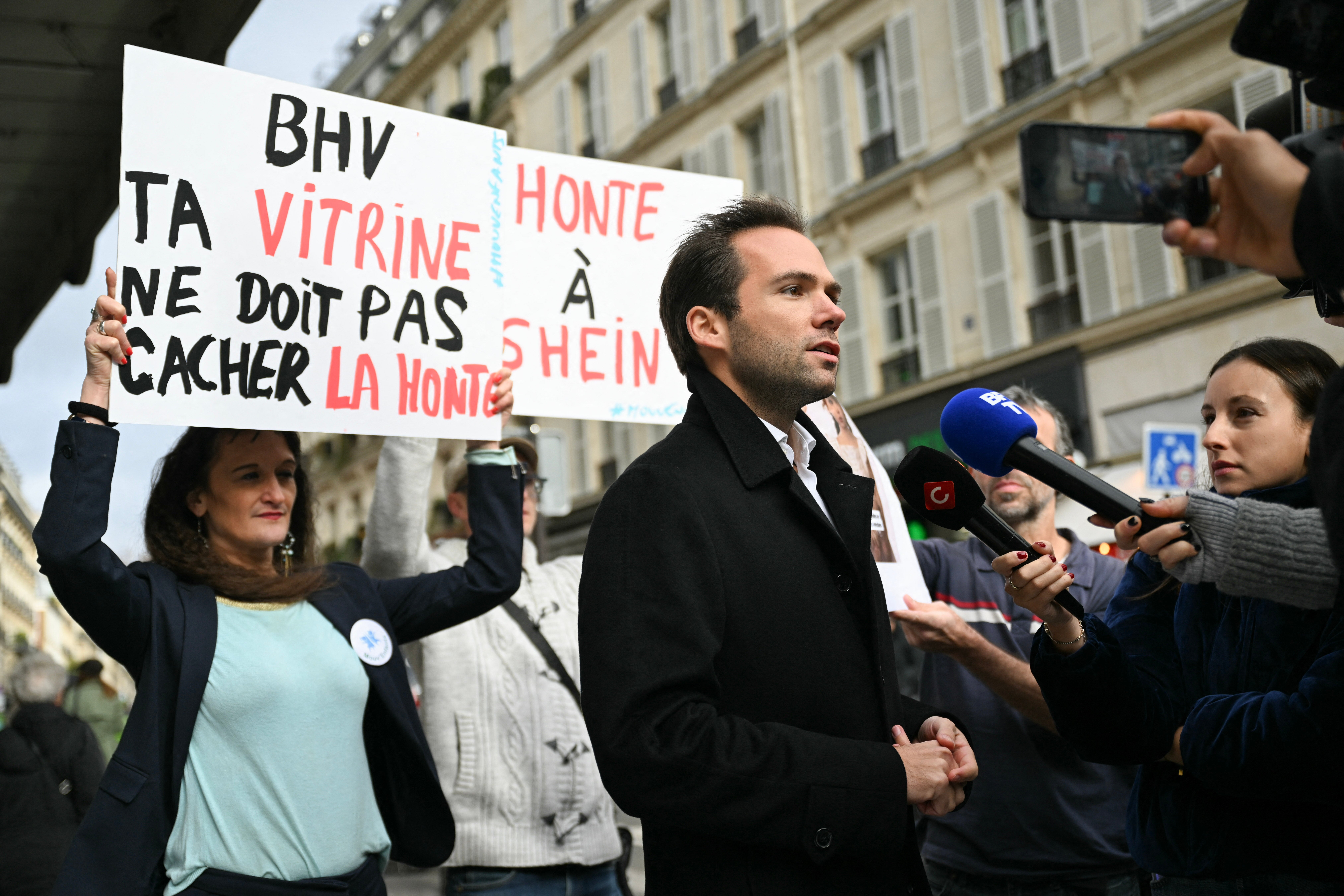Chinese online retailer Shein has permanently banned the sale of all sex dolls on its global platform after French authorities accused it of selling items that appeared to depict minors, sparking widespread outrage and a potential ban from the French market.
The move comes just days before the fast-fashion giant was set to open its first-ever permanent physical store in Paris, amid mounting scrutiny over its business practices, product oversight, and ethical standards.
Over the weekend, France’s Directorate-General for Competition, Consumer Affairs and Fraud Control (DGCCRF) revealed that it had “found that the e-commerce site Shein was selling child-like sex dolls”.
The watchdog said that “their description and categorisation on the site leave little doubt as to the child pornographic nature of the content”.
The DGCCRF referred the case to prosecutors, citing potential violations of French law. Under France’s penal code, sharing or selling paedophilic material online is punishable by up to seven years in prison and a €100,000 fine.
Officials from the anti-fraud office also said the case exposed insufficient safeguards on Shein’s site to prevent minors from accessing pornographic content.
French finance minister Roland Lescure issued a sharp warning to the company on Monday, calling the dolls “horrible objects” and noting that “if these behaviours are repeated, we will be entitled to… ban access to the French market for the Shein platform,” he told BFM TV. “These horrible objects are illegal,” he added.
“This has crossed a line,” he told a French radio station, adding that a formal investigation was underway.
.jpeg)
Mr Lescure said he had filed a legal report on the matter and asked France’s digital regulator Arcom – which oversees large online platforms under the EU’s Digital Services Act – to investigate how such content was allowed to appear.
“For terrorist acts, drug trafficking and child pornography, the government has the right to request banning access to the French market,” Mr Lescure added.
France’s High Commissioner for Childhood, Sarah El-Hairy, also announced plans to identify both the sellers and buyers of the dolls. “We’re fed up because these aren’t just any objects. These are paedocriminal objects on which predators unfortunately practice, sometimes before moving on to abuse children,” she added.
In a statement to Le Monde on Monday, Shein France’s spokesperson Quentin Ruffat said: “Regarding the sharing of contact information, we will be completely transparent with the justice system; if they ask us to do so, we will.”
.jpeg)
Shein said it had taken immediate corrective action in response to the wider outcry over the dolls. In a statement shared with the Associated Press, the company confirmed that it had removed all relevant listings once the company “became aware of these serious issues”.
The spokesperson added: “We take this matter extremely seriously. Such content is completely unacceptable and goes against everything we stand for. We are taking immediate corrective actions and reinforcing our internal controls to prevent this from happening again.”
Shein has also now reportedly begun investigating how the listings got past its screening systems and is reviewing its marketplace to ensure that any similar products from third-party sellers are identified and removed.
“The fight against child exploitation is non-negotiable for Shein,” Donald Tang, the company’s executive chairman, told CNN.
He had earlier described the expansion of the company – opening of brick-and-mortar stores in five other French cities – as a tribute to France’s enduring influence on global fashion, positioning Shein as an accessible, budget-friendly alternative to high-end French labels.

The scandal erupted just as Shein was preparing to inaugurate its first physical store at the BHV Marai – a department store in Paris opposite Paris City Hall – the company’s first brick-and-mortar outlet anywhere in the world.
The brand has faced repeated criticism over its environmental record, alleged labour abuses, and aggressive pricing model, which traditional French fashion houses say undermines their industry.
The New York Times reported that several French fashion and beauty labels withdrew their products from BHV Marais last month, protesting Shein’s arrival.
Meanwhile, Arnaud Gallais, a member of the nonprofit Mouv’Enfants association, a movement fighting against all forms of violence against children, said that removing the items “is not enough”.
This is not the first time an e-commerce platform has faced backlash for similar listings. In 2018, Amazon was forced to remove products after third-party sellers were found offering childlike sex dolls.
France previously took action against online marketplace Wish in 2021, ordering search engines and app stores to delist it over unsafe and illegal items – a ban lifted only after a year.
Longest gap in English Channel crossings by migrants so far this year
What to know about the 4 suspects in the Louvre crown jewels heist
Canada and Philippines to sign defense pact to boost combat drills and deter China's aggression
China blames Netherlands for chip supply tensions amid Nexperia standoff
Worker dies after being trapped under collapsed medieval tower in Rome
Ukraine live: UK sends Storm Shadows after Trump accuses Putin of secret nuke tests







